The end of a major international tournament, like Euro 2012 that just ended, is a good chance for some stat istical brushing up. This time? The greatest scorers for the best national teams in history, from Brazil, through Italy and Germany to even Mexico and Austria, with some great names like Gabriel Batistuta and Theirry Henry popping up.
How did we choose the 20 teams? We didn’t try and determine who actually are the 20 greatest national sides, so we took the World Cup all-time table and used that as indication for greatness.
Gabriel Batistuta (Argentina) – 56 Goals
Gabriel Batistuta, one of the greatest scorers in the world for over a decade began his scoring spree for Argentina in 1991, scoring six goals for Argentina in the 1991 Copa America, winning the tournament. Two years later he led his side to their last triumph in the tournament to date, scoring three more goals. He was part of the 1994, 1998 and 2002 World Cup squads, never making it past the second round. Batistuta is one of the few players with hat-tricks in two World Cup tournaments.
Hernan Crespo is 20 goals behind him at second while Lionel Messi, with 26 goals for the national team so far is at fourth, being the closest one with a chance of catching up.
Toni Polster (Austria) – 44 Goals
Toni Polster, despite not being part of Austria’s golden age of the 1930’s (in football, that is), was chosen in Austria’s Team of the Century in 2001. He played in two world cups for the national side, in 1990 and 1998, scoring only once, in 1998, against Cameroon. He scored over 300 goals for his clubs in a 18 year career. He’s second on the caps list with 95, behind Andreas Herzog. He’s followed by Hans Krankl on the goal list (34), the current head coach of LASK Linz. Of active players for the national side, Marc Janko is “closest” with 10 goals.
Bernard Voorhoof & Paul Van Himst (Belgium) – 30 Goals
Bernard Voorhoof played for Belgium in the 1930, 1934 and 1938 World Cups, scoring his 30 goals in 61 matches, one of only six people (5 players and one referee) to participate in all three pre-second World War world cups. Van Himst played for Belgium in the 1970 World Cup and Euro 1972, needing 81 caps to score his 30 goals. Daniel Van Buyten, with 10 goals for the national side, is the top scorer among those still playing international football.
Pele (Brazil) – 77 Goals
Greatest player ever? That’s for another time and another debate. Pele played in 92 matches for Brazil in their greatest and most dominant era, scoring 77 goals while playing in four World Cups and winning three, the only player to be a part of three World Cup winning sides (1958, 1962, 1970), despite not being an integral part of the ’62 side. He’s followed by Ronaldo with 62 goals. Among active international players, Ronaldinho, who has played for the national team in 2012, has 33 goals.Robinho has 26.
Marcelo Salas (Chile) – 37 Goals
Salas, retired now four years, played alongside Ivan Zamorano in the national team, leading Zamorano in the Chilean charts by three goals. He won a title with each of the clubs (Juventus, Lazio, River Plate, Universidad de Chile) he’s played for during his career, playing in two Copa Americas (1995, 1999) and one World Cup (1998), scoring four goals in that tournament. Humberto Suazo is the chief chaser among active players with 21 goals in 50 caps.
Jan Koller (Czech Republic) – 55 Goals
Koller and the Czech Republic make the list thanks to the achievements of the united Czechoslavkia team. Koller, who played his final match for the national side in 2009. He played in three Euro tournaments (2000, 2004, 2008) and one World Cup (2006). He has three Euro goals in his career and two in the 2006 World Cup. He’s followed by Milan Baros in the scoring charts with 41 goals.
Bobby Charlton (England) – 49 Goals
Over 40 years since his last appearance for the national side, a few have come close to Charlton’s scoring record, but they always fall short. Charlton played in four World Cups with England, most famously in their only triumphant campaign in 1966, scoring three goals in that tournament. He also played in the 1968 Euro, scoring one goal. Gary Lineker was one goal away from tying Charlton, Michael Own stopping at 40. Wayne Rooney, with 29 goals, might still reach him.
Thierry Henry (France) – 51 Goals
France’s greatest striker ever is still playing football in the MLS, making his last appearance for the national side in the abysmal 2010 World Cup. Henry set up the illegal goal that put France through the playoffs, in that notorious match against Ireland. Henry won the World Cup (1998) and the Euro (2000) with the French golden generation, scoring 10 goals in major tournaments. Michel Platini is second on the list with 41 goals. Karim Benzema, with 15 goals, is the closest among active players.
Gerd Muller (Germany) – 68 Goals
Gerd Muller is one of the greatest strikers in the history of the game, scoring 68 goals in 62 caps for West Germany, winning the 1974 World Cup and Euro 1972, while enjoying an illustrious club career with (mostly) Bayern Munich, scoring nearly 500 goals for his clubs. He scored 10 goals for West Germany in the 1970 World Cup (SF), four in Euro ’72, including two in the final and one, his final goal for the national team, in the 1974 World Cup final. He’s followed by someone who might still catch up – Miroslav Klose with 64 goals.
Ferenc Puskas (Hungary) – 84 Goals
Hungary are on this list mostly because of what Puskas and his teammates did in the 1950’s, taking Hungary to the final in the 1954 World Cup. He scored three goals in that world cup, including one in the final when Hungary were upset by West Germany 2-3. He scored twice in the earthquake wins over England in 1953 – the 6-3 win at Wembley and the 7-1 win in Hungary. He’s followed by Sándor Kocsis with 54 goals. Zoltan Gera with 21 goals is the closest to them among active players.
Luigi Riva (Italy) – 35 Goals
One of the few great Italian players who didn’t play for one of the big clubs, Riva spent most of his club career playing for Cagliari, winning a historic title in 1970. He reached the World Cup final with Italy that year, losing to Brazil in the final. He scored one goal in the 1968 Euro which Italy one – in the replay match against Yugoslavia in the final. He scored three goals in the 1970 World Cup, including one in extra time in the semifinal against Germany.
He’s followed by Giuseppe Meazza with 33 goals. From the players who participated in Euro 2012, Daniele De Rossi with 10 goals is the closest to Riva.
Jared Borgetti (Mexico) – 46 Goals
Borgetti never really succeeded outside of Mexico, scoring most of his goals during his time with Santos Laguna. He played in two World Cups with Mexico – 2002 and 2006, scoring twice in 2002. He did win the 2003 Gold Cup with the national side, scoring three goals in the tournament. He’s followed by Cuauhtémoc Blanco with 39 goals. Blanco is still not retired, but hasn’t played for the national side since 2010. Javier Hernandez with 25 goals is the leader among the current crop of players.
Patrick Kluivert (Netherlands) – 40 Goals
Kluivert played in three Euro tournaments with the Netherlands, reaching two semifinals in 2000 and 2004. He was joint top scorer in Euro 2000 with 5 goals, including a quarterfinal hat-trick, but also a missed penalty in the semifinal against Italy. He also played for the national side in 1998 World Cup, scoring two goals. He’s followed by Dennis Bergkamp with 37 goals. Huntelaar is the leader among active players with 31, while Van Persie is right behind with 29.
Wlodzimierz Lubanski (Poland) – 48 Goals
Lubanski played during his career for unimpressive clubs like Gornik Zabrze and Lokeren in Belgium, more famous for leading Poland to the Gold medal in the 1972 Summer Olympics. He missed the 1974 World Cup because of injury and wasn’t impressive in the 1978 effort. He made his debut for the national team six months before his 17th birthday. Grzegorz Lato is second among Poland’s scorers with 45 goals. Robert Lewandowski, with 15 goals, is the leader among current players.
Pauleta (Portugal) – 47 Goals
Pauleta spent his succesful days scoring goals in France for Bordeaux and PSG, but won his only league title with Deportivo in Spain (2000). He played 88 times for the national side from 1997 to 2006, playing in two Euros (2000, 2004) and two World Cups (2002, 2006). He scored a hat-trick in the 2002 World Cup against Poland and only one goal in the 2006 World Cup before hanging his international boots. Eusebio, with 41 goals, is behind him, while Nuno Gomes with 29 goals is the closest among current players. Cristiano Ronaldo has 25.
Vladimir Beschastnykh (Russia) – 29 Goals
Retired since 2008, Beschastnykh was never a great scorer on club level with 124 goals in 453 matches, never scoring more than 12 goals in a season for the national side. He was part of the Russia squads to the 1994 and 2002 World Cups, adding the 1996 Euro to his resume as well. He scored one goal in the 2002 World Cup. Roman Pavlyuchenko, is second on the list for Russia with 21 goals. For USSR players, Oleg Blokhin, the Ukraine head coach, is the leading scorer with 42 goals, followed by Oleg Protasov with 29.
David Villa (Spain) – 51 Goals
One of the two players on this list who’s the all-time leader with a chance to continue and upgrade his numbers, Villa missed the 2012 Euro because of an injury he suffered during the Clubs World Cup seven months ago. He won the 2008 Euro and the 2010 World cup with Spain, scoring four goals in 2008 and five in 2010. He’s followed by Raul with 44 and Fernando Torres with 31.
Sven Rydell (Sweden) – 49 Goals
Part of the really old days, Rydell played for Sweden during the 1920’s, ending his career in 1932. He never played in the World Cup, with his only menaningful international appearance coming in the 1924 Olympic games, winning a bronze medal for Sweden. Gunnar Nordahl follows his with 43 goals. Zlatan Ibrahimovic is fourth on the list with 33 goals in 80 caps.
Diego Forlan (Uruguay) – 33 Goals
No longer the best player on the Uruguayan side who, against all odds, is currently the best in South America according to the FIFA rankings and recent results. Forlan was monumental for Uruguay in the 2010 World Cup, scoring five goals, helping Uruguay to the semifinal for the first time since 1970. He scored twice in the 2011 Copa America final against Paraguay, Uruguay’s first title since 1995. He’s followed by Hector Scarone with 30 goals, and Luis Suarez with 28.
Stjepan Bobek (Yugoslavia) – 38 Goals
While Russia and the Czech Republic enjoy the records of the former unified teams, none of the former Yugoslav pieces enjoy that stastical luxury, with Yugoslavia’s last major tournament being the 1990 World Cup. Bobek played between 1946-1956, playing in the 1950 and 1954 World Cups. He won two Silver medals with the Olympic teams, scoring a total of 7 goals in the 1948 & 1952 Olympic games.

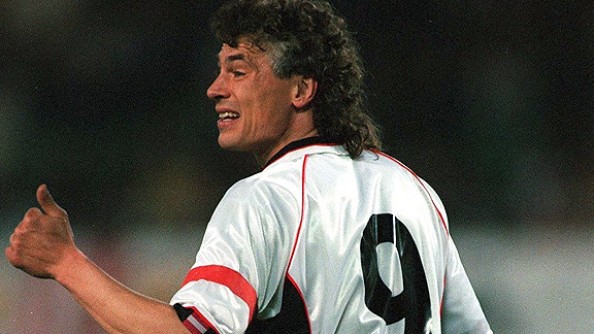
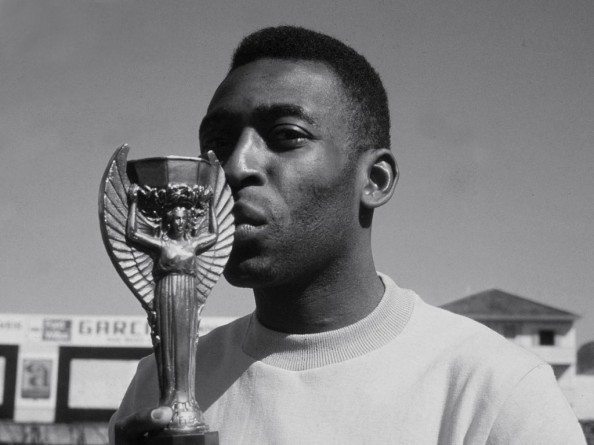


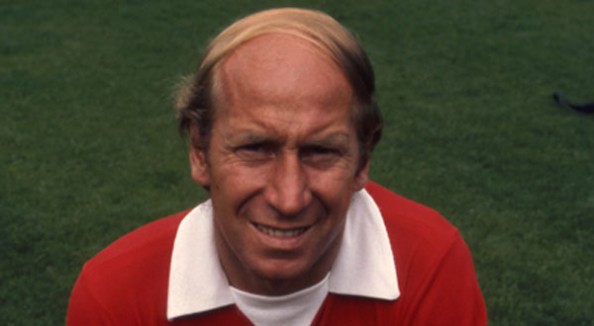
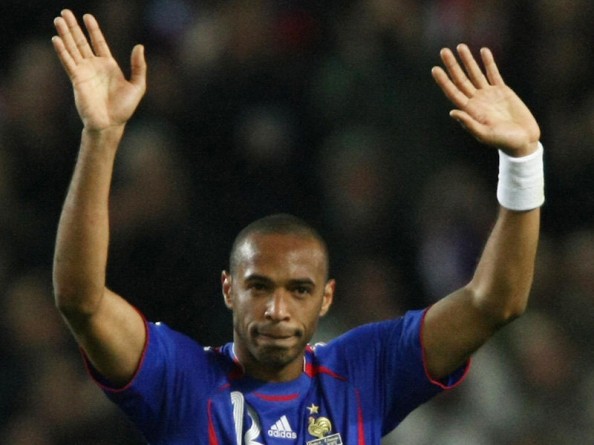
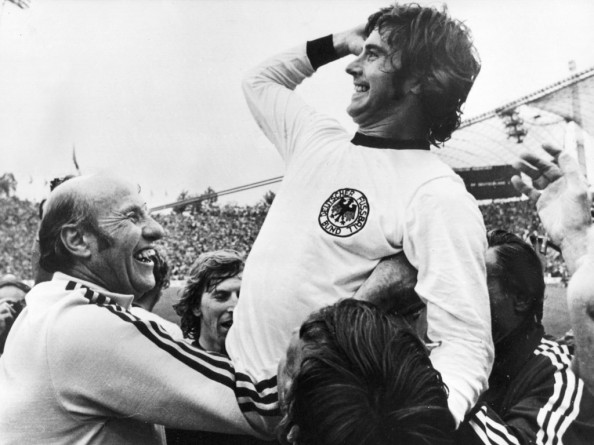
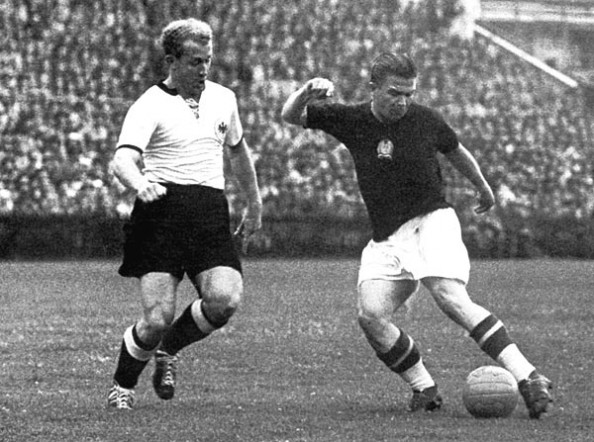
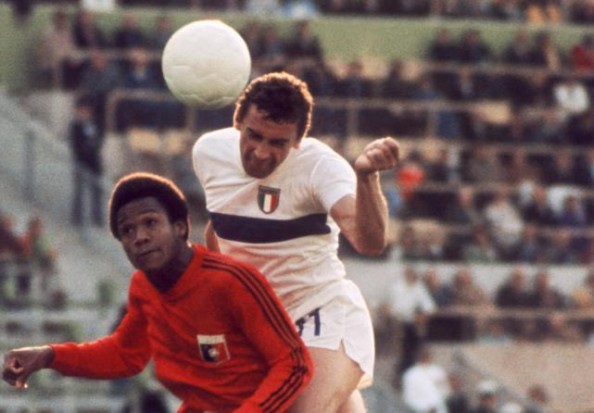
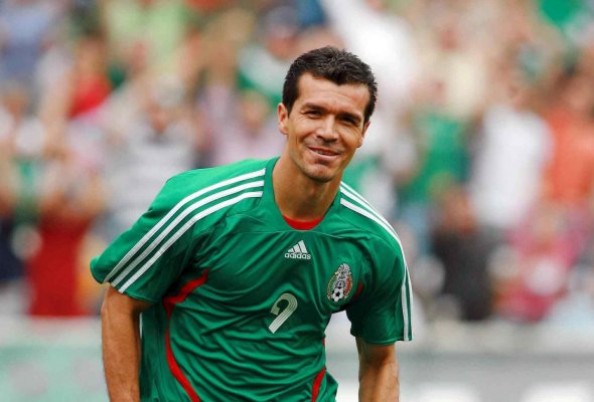

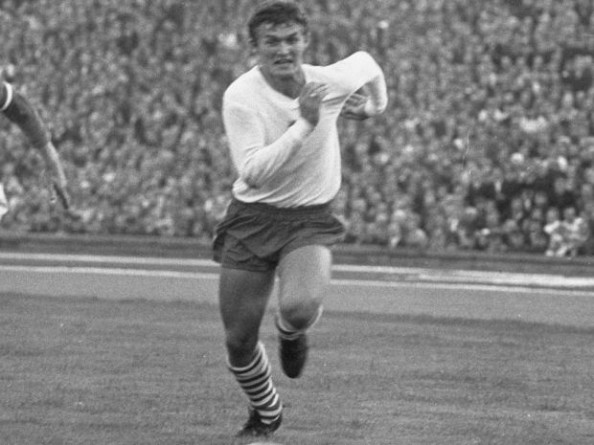
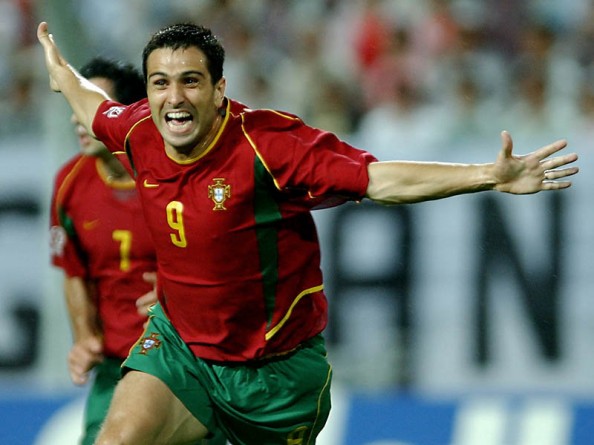

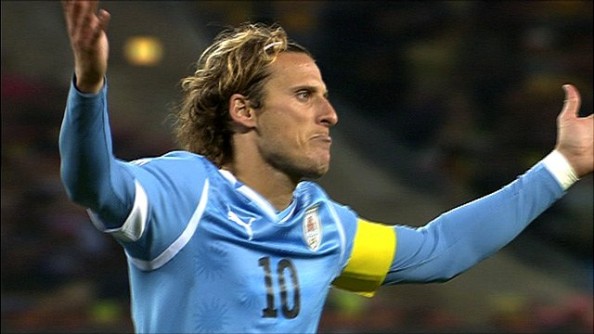
One response to “All-Time Leading Goalscorers for the Top 20 National Teams”
[…] = 'none'; document.getElementById('singlemouse').style.display = ''; } Musical Coaching ChairsAll-Time Leading Goalscorers for the Top 20 National Teams .recentcomments a{display:inline !important;padding:0 !important;margin:0 […]